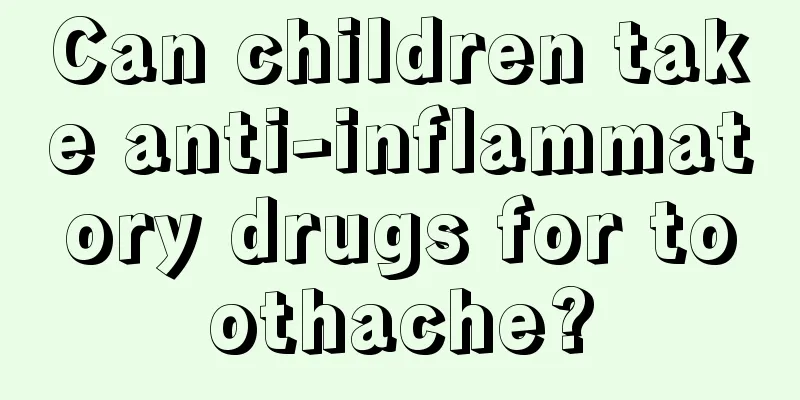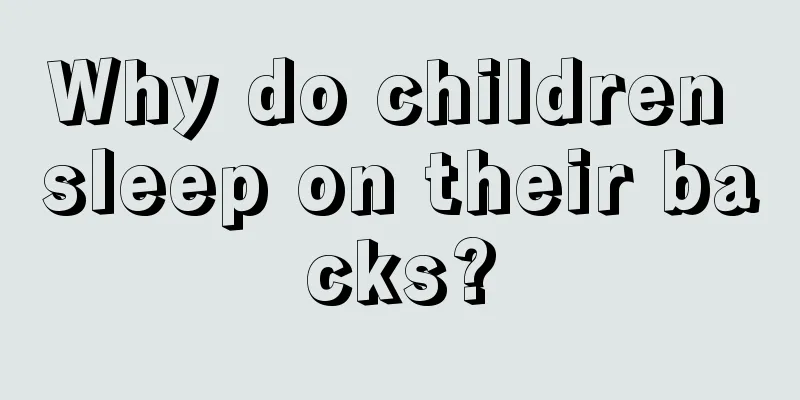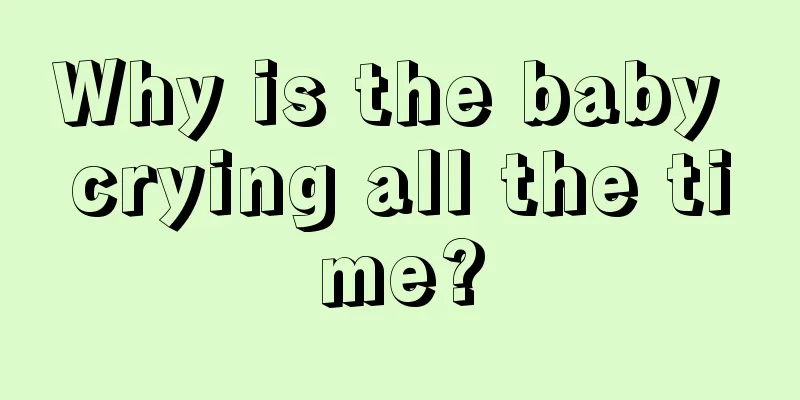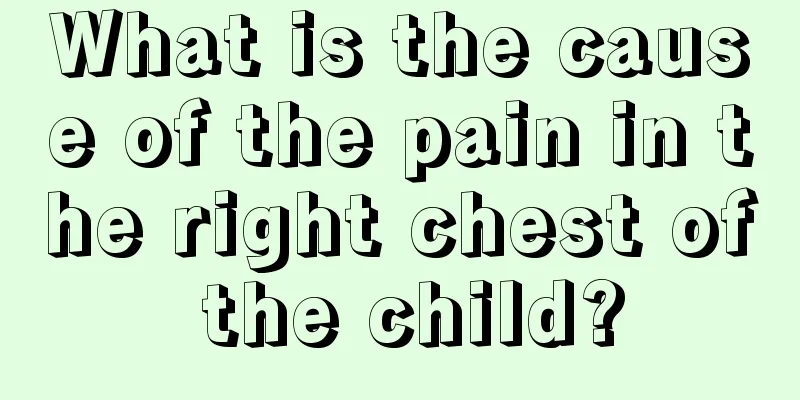Can children take anti-inflammatory drugs for toothache?

|
Toothache is a relatively common phenomenon. Not only adults suffer from toothaches, children also often suffer from toothaches. Because children prefer to eat sweets and don’t like to brush their teeth. Therefore, most toothaches in children are caused by tooth decay. Tooth decay is when parasites grow inside the teeth. The daily activities of these parasites can cause toothaches that are quite noticeable. So can children take anti-inflammatory drugs when they have toothache? Toothache is mostly caused by infection of the dental pulp (dental nerve) due to gingivitis and periodontitis, caries (cavities) or fractured teeth. It is caused by not paying attention to oral hygiene, long-term stimulation of the teeth by soft plaque and hard tartar formed by food residues and bacteria around the teeth, incorrect brushing habits, vitamin deficiency and other reasons. Toothache is one of the common symptoms of various dental diseases and periodontal diseases. Its characteristics are mainly toothache, swollen gums, difficulty chewing, thirst and bad breath, or intermittent pain, pain when exposed to cold or hot stimuli, swelling of the cheeks, etc. The gums are bright red or purple, swollen, and soft. Sometimes there is erosion at the gingival margin or proliferative eversion of granulation tissue. The gums are prone to bleeding when brushing teeth or eating, but there is generally no spontaneous bleeding. Patients have no obvious subjective symptoms, but may sometimes feel itchy or swollen. (1) Deep caries: The pressure of embedded food, cold, hot, sour, sweet, and chemical stimulation will produce more severe pain. After the stimulation is removed, the pain will disappear immediately or last for a short time before disappearing. (2) Cracked teeth: The incidence rate is highest in the maxillary first molar near the palatal cusp. Superficial cracks often have no obvious symptoms; deeper ones are sensitive to cold or hot stimuli or have discomfort when biting; those close to the pulp will experience fixed-point severe pain when chewing. Place a cotton swab on the cusp of the cracked tooth and instruct the patient to bite down, and a brief tearing pain will occur. (3) Wedge-shaped defect: Initially, the symptoms are dentin hypersensitivity due to sensitivity to cold and heat. As the degree of tooth defect increases, it may cause symptoms of pulpitis and apical periodontitis. (4) Chronic wear: Dentin exposure can cause dentin hypersensitivity. The degree of sensitivity to cold, hot, sour, sweet and mechanical stimulation causing pain varies from person to person. |
<<: Why do I have diarrhea after taking anti-inflammatory drugs and going to the toilet?
>>: Children have diarrhea after taking anti-inflammatory drugs
Recommend
What to do if your child is more immature than his peers
Children in any family are cared for by their par...
At what age should children receive vaccinations?
Many children need to be vaccinated after they ar...
How to prevent babies from getting prickly heat in summer?
In summer, the weather is very hot. If the mother...
Baby's stool is like tofu dregs
The baby's stool is actually a way for parent...
Treatment of suppurative tonsillitis in children
The physical health of children is an issue that ...
Signs and symptoms of calcium deficiency in babies, mothers, please pay attention!
The baby's body is relatively fragile. When a...
Three month old baby's fart smells bad but he doesn't poop
It is actually very unhealthy for a three-month-o...
How to reduce swelling on a child's head
No matter what condition a child has, parents are...
What should I do if my baby cries when breastfeeding?
Breast milk is the best way to feed our babies. B...
Treatment of white ringworm on children's face
It is very painful for patients with ringworm on ...
What are the precautions for babies to eat sugar pills?
The so-called sugar pill is a vaccine, which is a...
Does your child vomit out everything when he coughs while sleeping at night?
The baby's stomach and intestines are very we...
3-year-old baby's stool is granular
The stool of a three-year-old baby is in small pi...
Why do children have water beans?
In fact, the chance of children getting chickenpo...
How to treat baby heat bumps
The physical health of infants needs attention, b...









